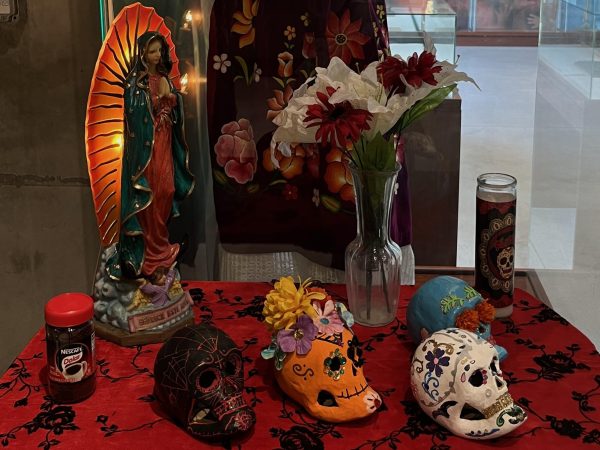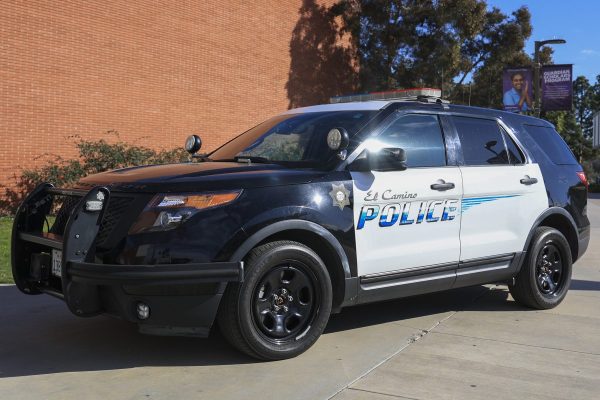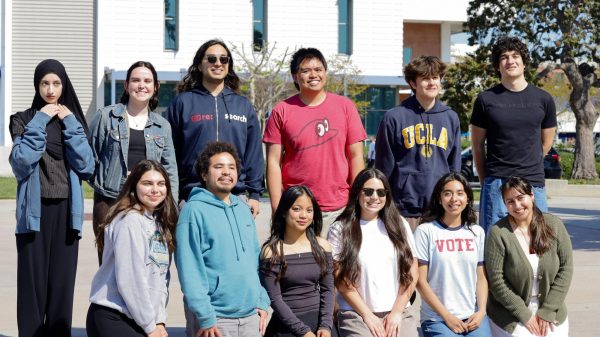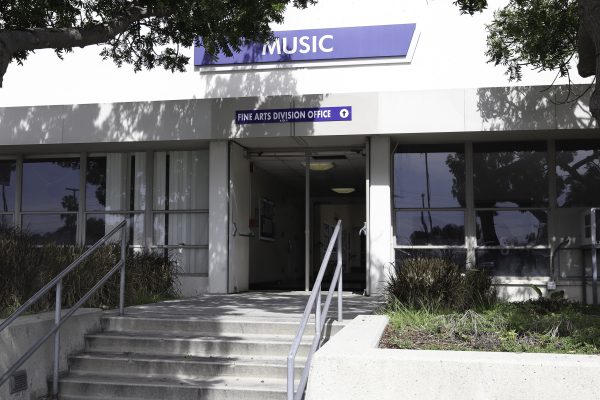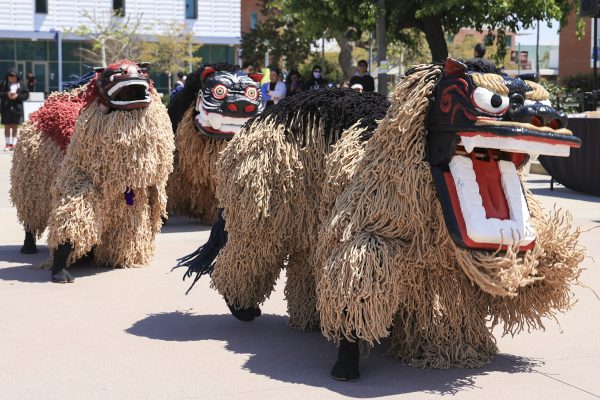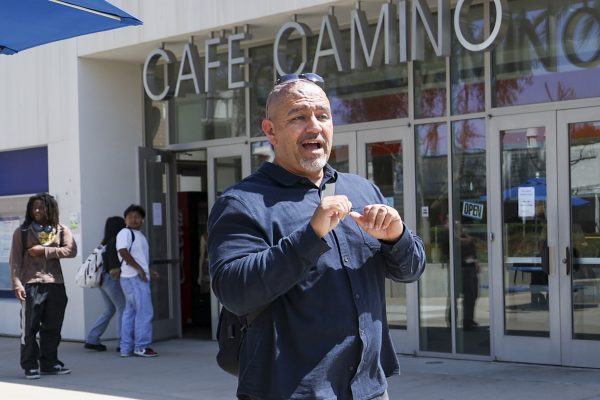Board of trustees candidates answer questions regarding campus closure and presidential hiring
As students round off their tenth week of the fall 2020 semester, questions about who the next president of the college will be and what the “safe return” to campus will look like hang in the balance.
The Union sat down with the Board of Trustees candidates to see what their plans are for virtual learning and what they would prioritize in the presidential hiring process.
Q: What does a, ‘safe return to campus’ look like to you?
Area 1:
George A Turner Jr.:
‘I think the first of all, we need to be focused on what the health officials say would be a safe return to campus. I think [that] focusing on things like whether or not there is a vaccine, [whether] or not the numbers of people who are contracting the virus is increasing or decreasing.
“I think that we should be very, very cautious about not creating a super spreader sort of environment.”
“Something [that’s] going to be important is making sure that our faculty is good and trained, and has the support with regard to issues of distance learning.”
Area 3:
Trisha Murakawa:
“I would want to know what the policy decisions are by the LA County Department of Public Health and our public health officer first.
“And then, [of] course, the President and VP of human resources, and I hope that there would be some kind of working group [that] would have representatives from all stakeholder groups, including students, staff, faculty, administration [and] management come together and create a plan where everybody would feel like it was safe.
“So the bottom line is people have to be safe. But you also have to provide a sense of safety. People have to feel like it’s a safe environment.”
Siannah Collado Boutté:
“I’m not a medical professional. So I would defer to the authorities, the governor, the Chancellor’s Office, the LA County Board of Health Officer, to make that determination.
“And once that’s made, I think a big meeting with the faculty, staff, administration, and probably ASO would assist in terms of like, what students need, how [everyone] would feel comfortable going back to make sure that our students and staff are safe. That’s our priority.”
Area 4:
David M. Kartsonis:
“I have a general idea of how infectious diseases work, I also have a certificate in epidemiology from the University of North Carolina [at] Chapel Hill. I think I’ll bring to the board a reasonably educated opinion on what we should and should not do, we should not rush into anything that would put our students or our faculty or staff in any sort of risk.
“They’ve already started rolling out the PPE distribution center on campus. So the staff that we do have there, and the students that we do have there, are provided with what they need to be safe. Unfortunately, a lot of this decision doesn’t rest with the Board of Trustees, it’s going to rest with the state and the county. But ideally, I mean, safely… for me, I’d love to get students back on campus.”
Katherine Steinbroner Maschler:
“I think a safe return, is going to have a lot to do with what the present state of the virus is. How many are contracting it? What is the level? Is there a vaccine? Does it work? How accessible is it to the regular population like you and me?
“And number two, we have to go with what the Chancellor says. We’re going to have to look a lot at how many people should be in a room. Do we need bigger rooms, smaller classes? Should we continue having more classes online so we can reduce the number of students on campus? Do we need to beef up our custodial staff in order to make sure that things are as clean as humanly possible?”
Nicole A. Ryan:
“We’re really going to have to think about the flow of classes, the flow of people on campus, the safety protocols, as far as keeping everything clean, how to get our students fed, when [they’ll] be on campus safely, how to allow them to access the resources in the library, or in study rooms. Especially for our students that are in trade programs, how we can keep them safe.
“I think it’s going to come down to examining what best practices [other] large institutions are doing, and how we can see what’s working for us.”
Q: What will you prioritize in the search for and hiring of a new president?
Area 1:
George A Turner Jr.:
“So you want someone with a background in running large institutions, you also want somebody who has a strong background in education. So someone who isn’t just an administrator, but someone who has some serious classroom experience, some serious academic experience, some things in publishing, possibly, but definitely some as someone who’s understanding of the issues associated with teaching and lecturing on campus.
“I’m somebody who’s kind of cards face up about [things] that I think that are important. I think that diversity is important. So I think someone who has a demonstrated background in diversity, and making sure that the students, faculty and staff reflect the communities in which they represent.”
Area 3:
Trisha Murakawa:
“Somebody who also believes in shared governance, someone who is going to be a partner with the Board of Trustees as the leadership group, for the district.
“I would want somebody who has those good types of values; of trust, respect, responsibility, I do think you also need to have courage because you’re not going to please everybody, and you have to have courage to be able to stand up and take the constructive criticism that will be thrown at you.
“I also expect excellence, I expect accountability as well. And I really think that, the decision making process needs to be out in the open so that you can hear feedback, good and bad, from all stakeholders. And then of course, I’d be looking for somebody who is committed to El Camino. Surely not somebody who’s just going to be here for a short time and transition to their next big position in their career”
Siannah Collado Boutté:
“I would want a candidate that is a leader, obviously. Someone that is good at communication, because they’re going to have to communicate with all constituents, someone who’s fiscally responsible and has a background in community colleges [would] be a plus.
“Someone that’s adaptable and flexible given that we don’t know what we’re going to face in the next year or two with the safe return and the budget crisis. So someone that’s definitely flexible. A president that takes into account equity, diversity, and inclusion would be a plus, not only at the hiring of faculty and staff, but also in student retention and recruitment.”
Area 4:
David M. Kartsonis:
“So we need to have somebody who is going to be fiscally responsible, somebody that’s going to make sure that we don’t get in the same position that Compton College got into, or the same position that San Francisco Community College got into.
“[We need] somebody that looks at all the stakeholders at the college. And weighs them all. I also think [hiring] somebody who’s growth minded, is important.’
Katherine Steinbroner Maschler:
“I think if you have goodwill on campus, and people are feeling good they do better jobs, and everybody gets along better, things work better. [Somebody] with some forward thinking ideas as to where El Camino can go from here. I would look for somebody who is supportive of faculty, and the problems or concerns the faculty have right now… I would like to see maybe some type of compensation for part timers.
“I would like to see someone come in as president that would support not contracting out the particular positions in classified areas like custodial, that’s been on site for over 20 years… I’m hoping that a new president will support no layoffs, no furloughs.
“I would like to see a new president perhaps reach out to the community more because if you reach out to the community, you’re going to get more students.”
Nicole A Ryan:
“I think it’s really important that we find somebody for El Camino College that represents everybody. It’s not just about raising money, it’s about ‘how can the money that we raise affect change and make sure that every student has equity?’
“I think somebody coming in really has to see the whole picture for El Camino College and be ready to make changes to help support our students and our faculty and our staff.”
Kenneth Brown, incumbent candidate for Area 1 was contacted three times via email by The Union, but did not respond.
Correction: A word was changed in the twenty-third paragraph.


